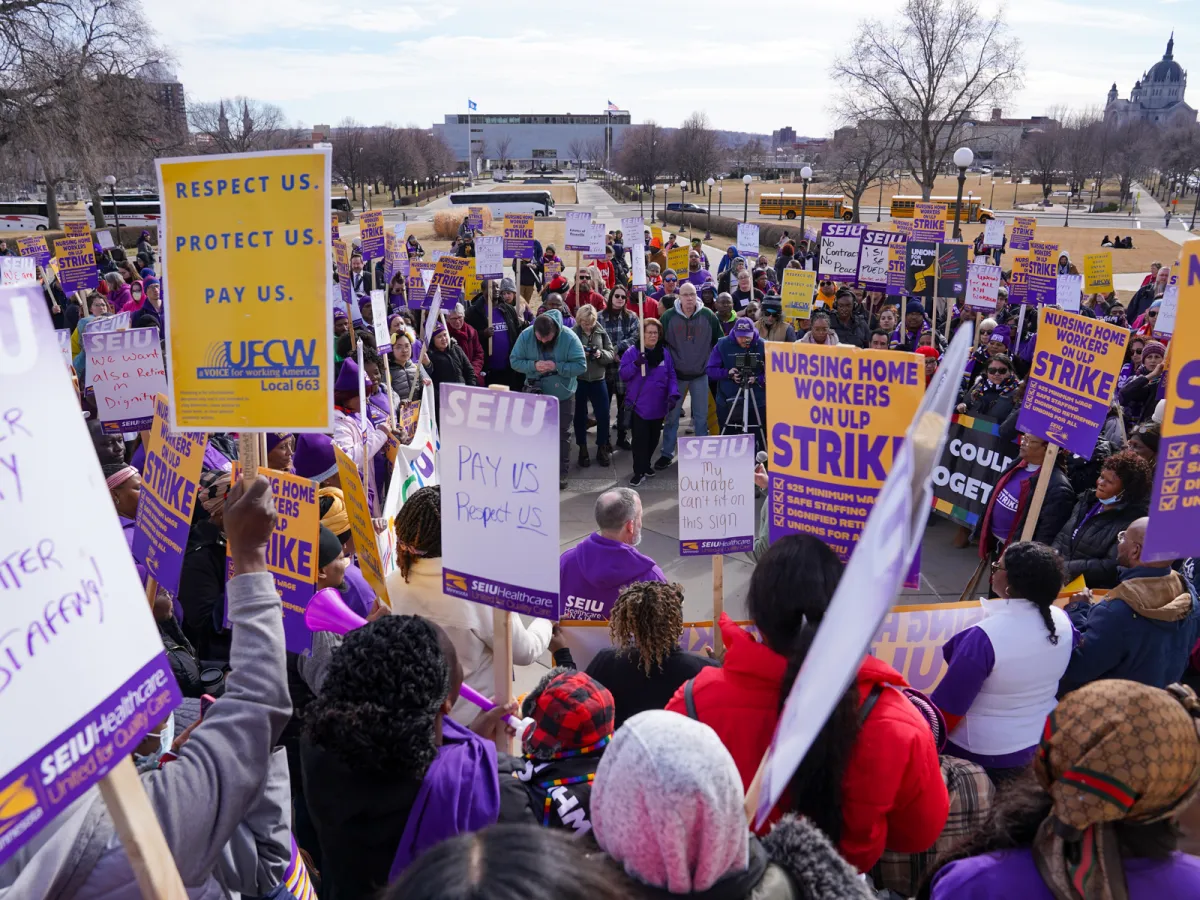The Minneapolis City Council has delayed the start date of a controversial rideshare pay ordinance, pausing for now the threat that Uber and Lyft would suspend service.
Council members voted unanimously on Thursday to delay the new rule from May 1 to July 1.
The vote came after weeks of increasing pressure from business groups, disability advocates and Mayor Jacob Frey to amend the ordinance, which would significantly boost what drivers are paid for a ride within city limits.
Council Member Aurin Chowdhury said pushing back the timeline to July allows the city to coordinate with legislators who are proposing a statewide rideshare pay floor. And it would also provide more time for alternative services to get established in case the rideshare giants leave.
“This creates opportunity for new emerging rideshare companies that have applied for licenses in the city of Minneapolis,” she said. “And [for] existing mobility options within our city to have the time necessary for them to be viable within the market and also time for riders to adopt it.”
As of Thursday, only four rideshare companies have applied for licenses with the city. None has been approved thus far, Chowdhury said.
Two other council motions to amend the new rideshare ordinance failed on Thursday.
Council Member Emily Koski introduced a motion to lower the per-mile rate to $1.21, but the motion only drew three votes in support.
The ordinance passed in March sets minimum rates at $1.40 per mile and $0.51 per minute to get drivers, who are independent contractors, to the city’s minimum hourly wage.
Finally, Council Member Linea Palmisano motioned to rescind the new rideshare pay ordinance completely as she urged her colleagues to start from scratch. Her motion failed 3-10.
Uber, Lyft exit pushed back
Both Uber and Lyft welcomed the delay of the new ordinance and said on Thursday that they would extend their operations in Minneapolis until at least July 1.
“We are encouraged the Council is recognizing the flaws in their incredibly damaging ordinance,” Lyft said in a statement.
Lyft had said it was leaving Minneapolis; Uber planned to exit the entire Twin Cities metro area.
Both have pointed to a state study that found rates of $0.89 per mile and $0.49 per minute would meet Minneapolis’ minimum wage, although in a recent blog post Uber said even that rate would negatively impact drivers.
A bill currently making its way through Senate and House committees proposes rates of $1.39 per mile and $0.49 per minute for rideshare drivers statewide.
After Thursday’s meeting, Frey put out a statement emphasizing his commitment shaping a rideshare policy that kept everybody in mind.
“A delay is not a fix. While Council continues to make a mess of this, I’ll be working with policymakers and partners from across the disability, hospitality, and business communities to find a path forward for drivers and riders,” he said.
The new amendment to the rideshare ordinance is treated like a new ordinance and can be vetoed by the mayor, but his office said that will not happen.
Drivers respond
Following Thursday’s decision, leaders of two rival groups representing Twin Cities rideshare drivers said they were open to changes in the ordinance, but wouldn’t support a rate as low as $0.89 per mile.
“We are Minnesotans and what we’re asking for is to have a living wage, something that is a little bit better than what we’re getting right now,” said Yusuf Haji, spokesman for MULDA Members.
At an afternoon news conference with several City Council members, Eid Ali, head of the Minnesota Uber/Lyft Drivers Association (MULDA), said drivers would continue to push for new pay rules.
“While this development may pose a challenge, the resolve of drivers to pursue fair treatment remains unwavering,” he said.
Council Member Elliott Payne said the City Council is working with legislators as they shape a statewide bill to avoid being preempted by what might pass.
“We’re working with our professional staff to make sure that they’re validating the wages that we set so that they’re accurate for our city,” Payne said.
Chowdhury said her goal is to have an ordinance implemented on July 1.
“We believe as a council, and in our conversations with stakeholders in the state Legislature, that this is the timeline that we’re able to operate to achieve all the goals that we laid out,” she said.
Representatives from alternative rideshare companies also spoke at the event, but out of all of the companies present, none had submitted an application for licensure through the city.
Hich representative Mustafa Sheikh said his company was nearly ready to submit but was still struggling with the insurance portion of the application.






